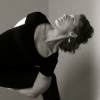When I find myself at my boiling point, I know that change is right around the corner.
Perhaps we find ourselves fed up at work with the constant flow of tasks coming our way, never feeling like we’ve accomplished much of anything. Maybe it’s the continued yelling and chaos that occurs at home in our relationships.
The tragedies across the world and the hurtful behavior of some directed at others seems endless at times.
Sometimes, all we want is for our teenagers to turn in their homework on time and complete household chores without having to be reminded 50 times. Perhaps, we find ourselves just wanting to be able to have a heart-to-heart conversation with someone—anyone—and not walk away feeling judged, criticized or shamed.
I find myself at my wits end with the hyper-focus of the media on what truly does not matter most of the time, keeping what does matter hidden from view. I tire of hearing about the disconnect in homes, where everyone spends the evening in their rooms glued to the computer rather than enjoying the time they have together—supporting, connecting and loving each other.
I can tell you that I am fed up—some days are definitely more challenging than others. And, what to do on those days—the days where the boiling point is reached and we feel like we just can’t take anymore?
Get grounded. Breathe. Find awareness. Allow for mindful change.
You see, the boiling point is just that—the point at which the matter transforms. It not only transforms itself, it transforms what is being boiled—the noodles, the eggs, the vegetables.
Just as water begins to boil and bubble up—transforming itself from a place of calm and quiet—and as a result changing something outside of itself, we sometimes require chaos and crisis before we actually realize the desire for change in our lives. It is at this time that we are more likely shift desire into action.
When we reach the boiling point—change happens whether we like it or not. The key is to be as mindful as we can about it.
Maybe the change is only felt or seen within our own awareness—shifting our thoughts, beliefs and making new meanings. Sometimes the change includes a change in our surroundings—who we love, where we live, what we do.
And sometimes we try as hard as we can to resist it. White-knuckling it all the way. Holding onto what is familiar—even though we know it’s toxic, not good for us, and maintaining our powerlessness.
We all have our own relationship with change.
I, myself, love change. I think that came from my childhood. Growing up, I had plenty of opportunities to experience it—from moving around often, as my dad was in the military, to meeting new people every four years or so as we moved and attended new schools. New, unfamiliar places to experience, and new people to get to know.
I love imagining all the new possibilities in every changing circumstance.
But, change is hard. It takes us outside of what is comfortable and it takes us to what is unfamiliar. Our safety and security is shaken at times—leaving us feeling out of sorts and unsure.
But, as we know, the only thing constant in life is change.
And as we tighten our grip to what is comfortable or familiar, even though it may not be good for us—meaning it is robbing us of who we are, making us feel “less than,” leaving us feeling unworthy and powerless in our lives—we hold ourselves back.
The “it” can be a toxic relationship, a career that is devoid of creativity, a home in a location that is offering little to no support and “friends” who energetically rob and steal from us. Of course, these of are some of the biggies—the larger changes in life.
But, we might make changes to habits that are no longer serving us on a daily basis. Such as a change in our nutrition regime, in our daily routine, our fitness program or a change in our sleeping patterns. The decision to finally take care of ourselves after years of neglect can be a significant change that sometimes does not happen until our health shows signs of decline or when illness rears it’s ugly head.
As we maintain our attachment to certain things—people, ways of being, our profession, our health, materialistic objects and our own expectations—adjusting and accepting change becomes more of a challenge.
We find ourselves defined by what we are attached to, and the thought of losing or not having our attachments makes us feel as though we are losing ourselves.
But, we are not intended to stay the same throughout our lives—that is simply not living.
I am me. I will always be me. I will be better—or worse—in whatever way I choose. I will learn. I will grow. I will change. I will choose.
I choose to embrace change. To make my change—all that is important to me.
I know that change will happen anyway. I want to be in charge of it. And when I choose to create it before I reach the boiling point—I’m ecstatic. I know that I’m learning my lessons early, so to speak.
Sometimes I wait for the boiling point to push me in the direction of change, because I’ve avoided looking at my situation straight in the face and I’ve neglected the subtle cues that change is coming. And, I’m learning to appreciate those times. I’m learning to allow my intuition to guide me into the change that I know is best for me—not simply the one that is most comfortable.
Like elephant journal on Facebook
Ed: Bryonie Wise
{Photo: via Kendall Fischer}










Read 0 comments and reply